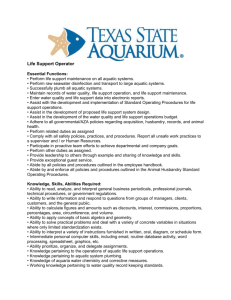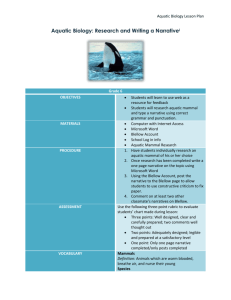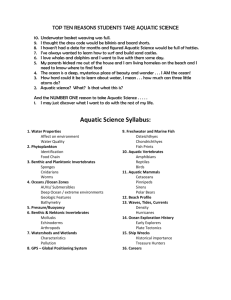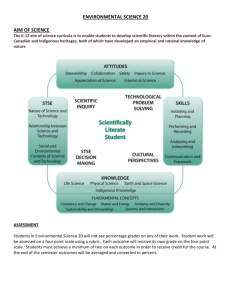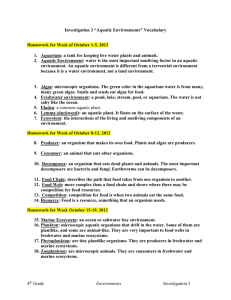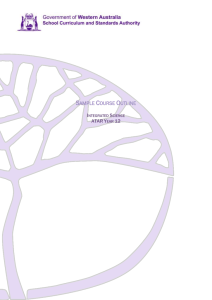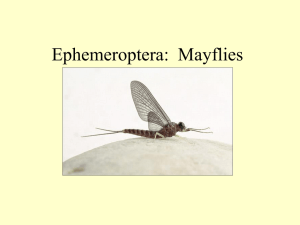AQUATIC SCIENCE Course Syllabus Teacher: Mrs. Kathryn Jones
advertisement
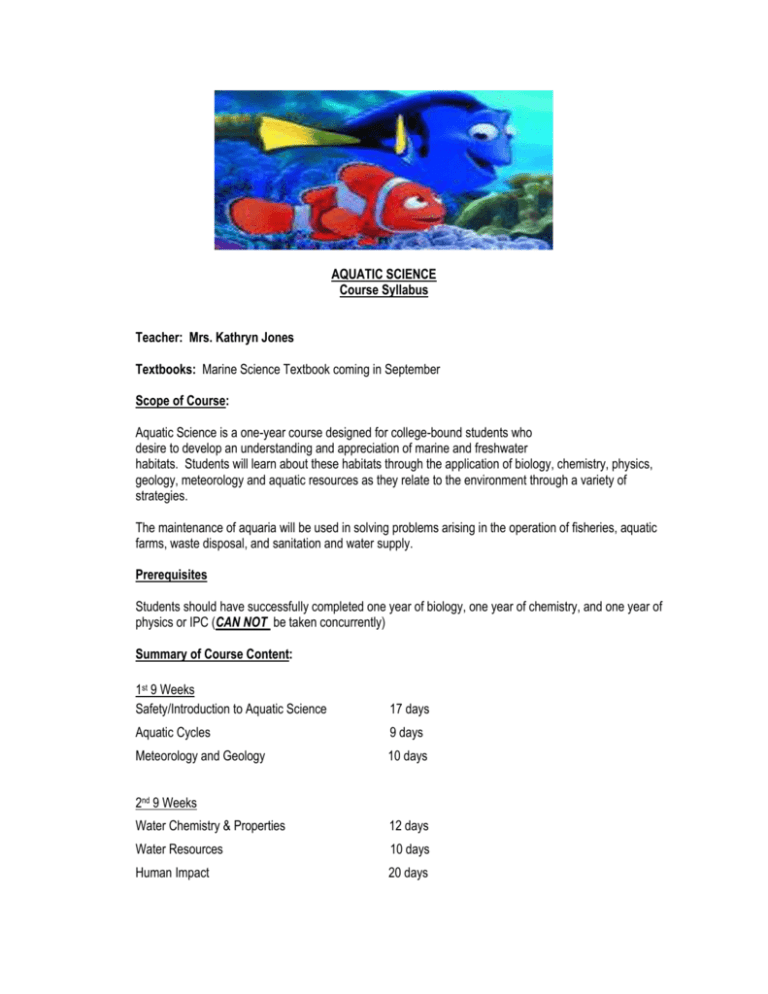
AQUATIC SCIENCE Course Syllabus Teacher: Mrs. Kathryn Jones Textbooks: Marine Science Textbook coming in September Scope of Course: Aquatic Science is a one-year course designed for college-bound students who desire to develop an understanding and appreciation of marine and freshwater habitats. Students will learn about these habitats through the application of biology, chemistry, physics, geology, meteorology and aquatic resources as they relate to the environment through a variety of strategies. The maintenance of aquaria will be used in solving problems arising in the operation of fisheries, aquatic farms, waste disposal, and sanitation and water supply. Prerequisites Students should have successfully completed one year of biology, one year of chemistry, and one year of physics or IPC (CAN NOT be taken concurrently) Summary of Course Content: 1st 9 Weeks Safety/Introduction to Aquatic Science 17 days Aquatic Cycles 9 days Meteorology and Geology 10 days 2nd 9 Weeks Water Chemistry & Properties 12 days Water Resources 10 days Human Impact 20 days 3rd 9 Weeks Energy Flow & Population Ecology Types of Aquatic Ecosystems & Adaptations Brackish Ecosystems & Wetlands 13 days 17 days 17 days 4th 9 Weeks Freshwater Ecosystems Tropical Saltwater Ecosystems Polar Saltwater Ecosystems 14 days 15 days 23 days Course Objectives By the end of the academic year, students should be able to: 1. Name and understand the terms associated with aquatic habitats. 2. Identify key features and characteristics of atmospheric, geological, hydrological, and biological systems as they relate to aquatic environments. 3. Demonstrate basic principles of fluid dynamics, including hydrostatic pressure, density, salinity and buoyancy. 4. Identify the role of carbon, nitrogen, water, and nutrient cycles in an aquatic environment, including upwelling’s and turnovers. 5. Compare and describe how adaptations allow an organism to exist within an aquatic environment. 6. Identify how energy flows and matter cycles through both fresh water and salt water aquatic systems, including food webs, chains, and pyramids. 7. Predict effects of chemical, organic, physical, and thermal changes from humans on the living and nonliving components of aquatic ecosystems. Grading FBISD grading policy is 50% daily and 50% major Student progress and understanding will be measured using a variety of assessments that may include the following: Classwork and homework Diagrams / Labeling Study Guide Packets Worksheets Participation Projects and activities Lab exercises and reports Tests and quizzes FBISD policy states that all students who make below a 75 on a test have the option to retest. To do so, they must attend the teacher's designated study session previous to the retest date. They must also complete the AVID study session request form in order to attend the study session. The highest grade possible the student can earn on the retest is a 75. There is a Cumulative final exam each semester All assignments are due at the beginning of the class period. If absent on the day a project/major grade is due, you must have someone bring it that day or turn it in early. Make-up/Late Work 1. Students have one day for each excused absence to make-up work. It is the student’s responsibility to find out what work was missed during an absence. 2. Late work in Fort Bend ISD Policy states: a. Daily – 30 pts. off one day late, 40 pts. off two days late, 50 pts. off three days late, after three days – up to teacher b. Major – 25 points off first day late, 40 points off second day late, 50 points off after starting with third day late. c. NO late work will be accepted the 9th week of the 9 week grading period. Special exceptions will not be made. Labs Students must take the safety test before they will be allowed to work in the lab. Students will follow directions strictly and all safety procedures at all times, or they will be excused from lab work with no score. Attendance during all lab days is extremely important, as some lab work can be difficult to make up. An alternative assignment may be required if a lab is missed. This course is an elective science course and maintenance of aquaria and live aquaria organisms plays an important role in the study and understanding of Aquatic Science. Therefore, participation is required; no alternative assignments will be arranged. You will also be required to purchase your own aquatic organism and food for your organism! Rules/Conduct All Fort Bend ISD rules and policies apply. Conduct that deviates from the expectations put forth by the district/school/teacher will be handled accordingly by Mrs. Jones!! Contact Information Email: Room Conference Tutorials Kathryn.jones@fortbendisd.com Science Hall Room 201 7th Period 1:40-2:30 By request only on Tuesday or Thursday afternoons
